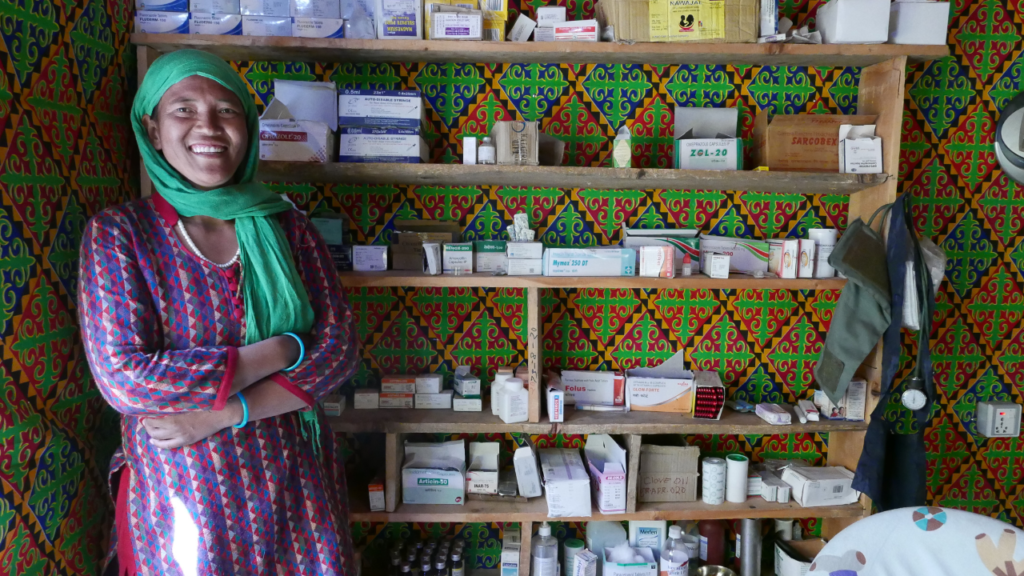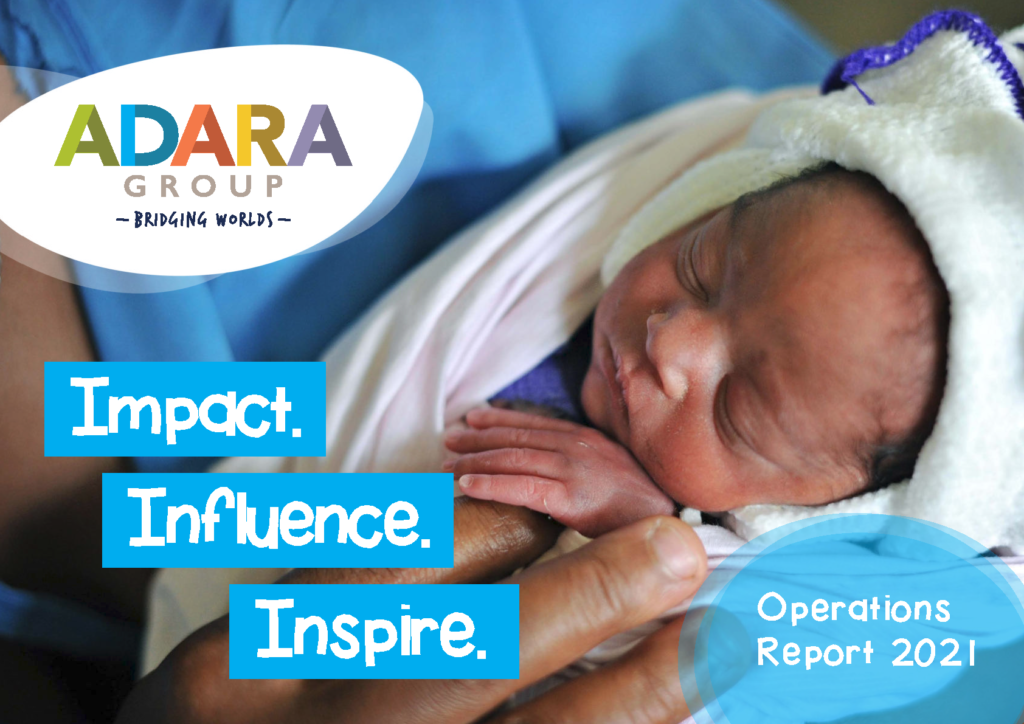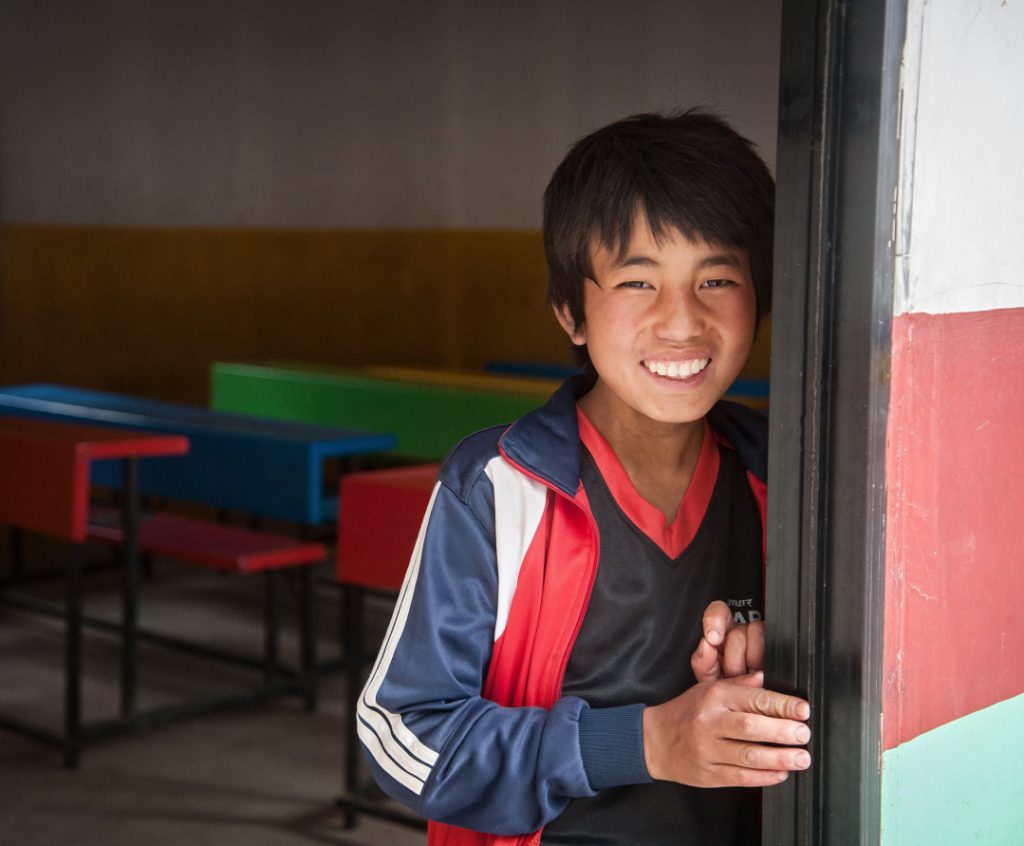We’re sharing some of our favourite stories from our 2021 Operations report. Thank you for standing with us to impact, influence and inspire others.
Idha was 32 years old when she learnt she was pregnant with her third child. At the time, her eldest son was 13 and her youngest was 10. She had been practising family planning for many years, and while the pregnancy was a shock, she quickly began readying for the arrival of another child.
Fortunately, Idha lives in Kholsi, where Adara supports a health post by supplying medicines, equipment, infrastructure improvements and a health worker. Idha began attending regular antenatal check-ups at the health post, where staff also provided her with folic acid and iron supplements. As her due date approached, staff recommended that Idha give birth at the Simikot District Hospital. This would ensure she had access to quality care.
However, there was a problem. Idha giving birth at Simikot District Hospital would involve her walking seven hours in the Himalayas while she was heavily pregnant.
“I cannot walk all the way to Simikot,” Idha told her heath worker. “I might die on the way.”
Despite the urgings of health post staff, a few weeks later, Idha welcomed a healthy baby girl into the world at home. Shortly after birth, Idha’s husband, Gagan, realised she had suffered significant damage during birth and had not yet delivered her placenta. Gagan immediately rushed to the health post to seek help. A health worker came to Idha’s home where they successfully delivered the placenta. Afterwards, he stayed with Idha and her husband and taught them about postnatal and newborn care.

“I don’t know what would happen to my wife today if we don’t have the health service here,” Gagan says.
Historically, Humla has had serious gaps in health service access. For a population of 60,000, the region only has one underequipped and understaffed hospital, and a small number of government health posts. Lack of access to quality care means that currently, more than 84% of Humli women deliver at home.
To reduce the likelihood of disease occurring, Adara runs prevention programmes with three main focuses: health awareness education, nutrition improvement, plus hygiene and sanitation. We also work with local communities to improve access to services if people do become ill. We do this through health post improvement, funding and supporting a Tibetan medicine practitioner, and providing emergency medical support. In 2021, 1,047 patients were treated by the Adara-supported Tibetan Medicine Practitioner and 8,063 were appointments held for patients at five Adara-supported health posts.
Idha and her family are in good health thanks to the healthcare worker and health post that Adara supports.
“We are so grateful to Adara for the support and to receive the regular health services in our village. That is not the case in many villages in Humla.” Gagan says.
In the coming years, we have big plans to utilise our experience in maternal, newborn and child health to help more women give birth safely.
“We are so grateful to Adara for the support and to receive the regular health services in our village. That is not the case in many villages in Humla.”
Gagan- Idha’s Husband
We’re taking the expertise and knowledge we have built in this area in Uganda to guide us. Through training health workers in the care of mothers and babies, and raising awareness about antenatal and postnatal care, we aim to improve survival rates across remote communities in Humla. As part of this work, we plan to establish a model birthing centre in the Chauganfaya village. It will benefit the community in both Chauganfaya and surrounding villages, who currently have to walk many days to access safe birth facilities at the District Hospital in Simikot.
We aim to help women, like Idha, to access quality healthcare, to ensure as many women as possible give birth safely across Humla.
Read more stories of joy and hope, like Idha’s, in our 2021 Operations Report.


